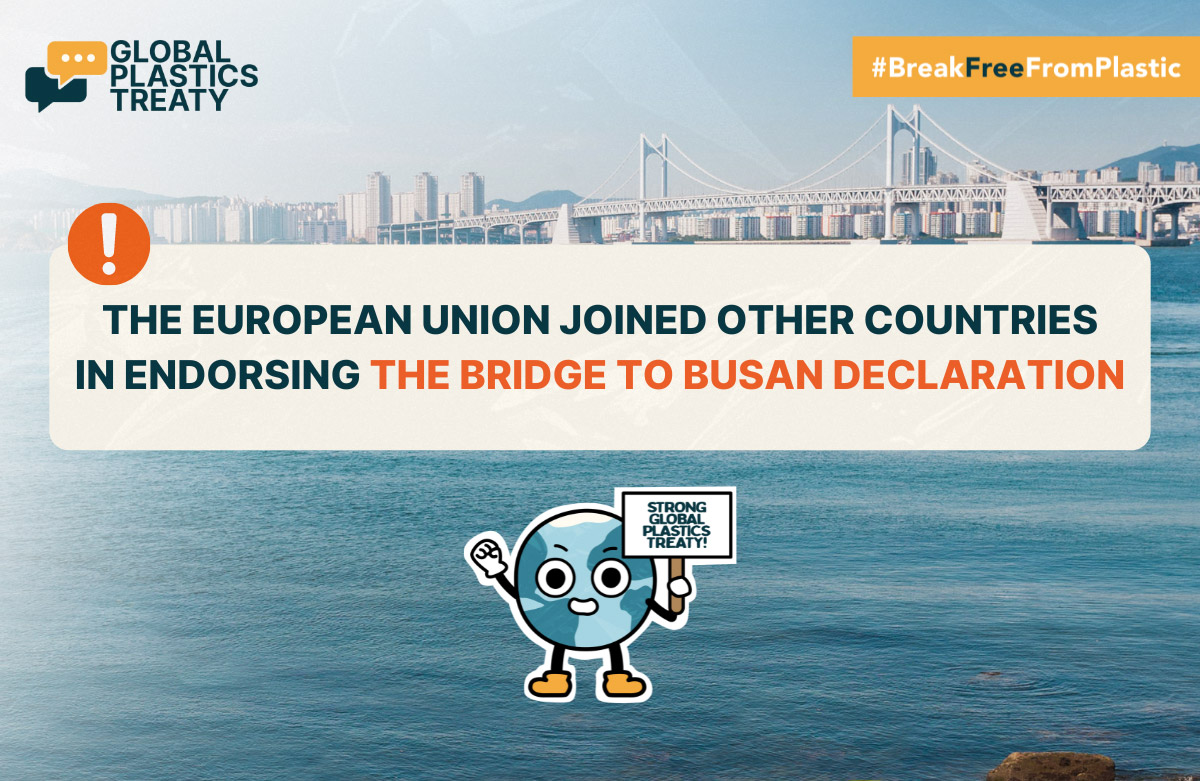Last week, the European Union joined other countries in endorsing the Bridge to Busan Declaration, which supports the inclusion of provisions addressing the production of primary plastic polymers in the Global Plastics Treaty. This latest action from the EU also helps build momentum toward the fifth (and last planned) round of negotiations in Busan, Republic of Korea, later this year.
By joining more than 20 other countries from across the world in signing this crucial declaration (launched by the Federated States of Micronesia), the EU sends a strong signal regarding the need for binding measures to achieve sustainable plastic production targets, which is key to an effective Plastics Treaty.
As countries prepare to progress negotiations at INC-5, it is imperative that they act on the demands of Indigenous Peoples as rights holders entitled to a healthy environment. Indigenous Peoples, together with allies in fenceline and frontline communities around the world, have been explicit in their demands for protection from the harms of fossil fuel extraction for plastic/petrochemical production and their rejection of false solutions like incineration and chemical recycling, Our movement supports their call for real circular solutions like non-toxic reuse systems and other Indigenous practices that move societies away from plastics addiction. Plastic proliferation and pollution are multifaceted and global issues. All of us rely on countries to continue pursuing legally binding measures within international law to ensure we agree on a strong and robust treaty that addresses the full life cycle of plastics from extraction to disposal.




